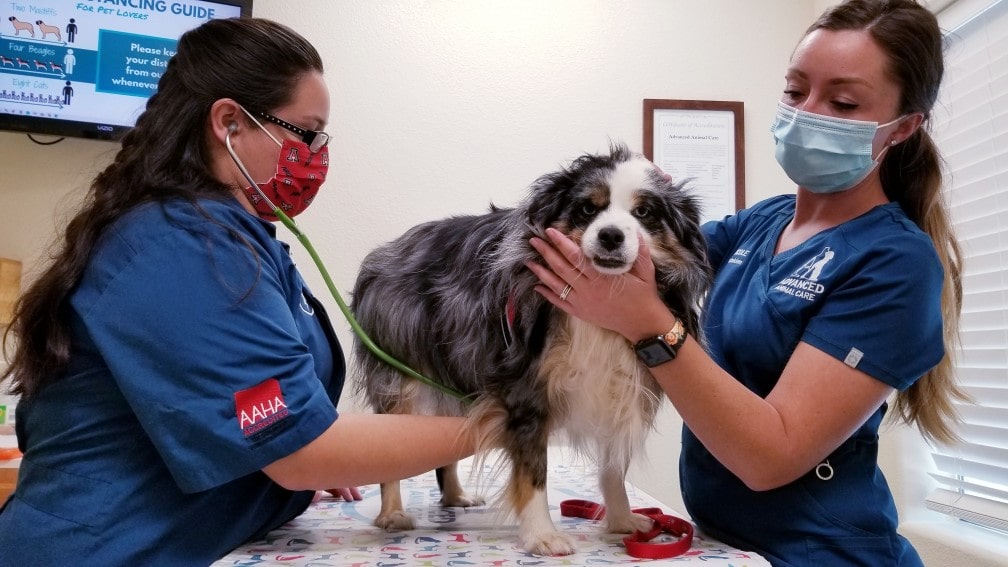Just like humans, dogs experience anxiety too. There are several factors that affect a dog’s outlook, usually as a result of fear or a traumatic experience.
Dog owners must always be wary of the symptoms and signs to watch out for. Read on to further understand dog anxiety, its telltale signs, what causes it, and how to treat it:
What is Dog Anxiety?
Dog anxiety is the result brought by fear, or the instinctive feeling of uneasiness ensuing from a situation, object, or person that poses an external risk. Whether it’s a real threat or a perceived one, any type of stimulus can cause dog anxiety. This is typically considered as normal behavior among animals, vital for adaptation and endurance.
In some cases, the excessive fear of something can be denoted as a phobia. It is associated with a sound, appearance, or even a memory that triggers an instinctive response, thereby causing dog anxiety.
Generally, there are three types of anxiety.
1. Separation anxiety
Dogs are highly social animals and just like humans, they tend to establish some kind of a special connection with their family and/or peers.
Canines living in the wild usually travel in groups called packs. Domesticated dogs live with their foster families and develop a special bond.
Unusual events like being alone or placing them away from the setting they’ve been accustomed to will put them into stress, which causes dog separation anxiety. Dogs that are placed in shelters or pounds experience the highest instance of this type of anxiety.
2. Noise anxiety
The more common type is called dog noise anxiety. This is caused by excessive noise including thunderstorms, gunshots, fireworks, car alarms, sirens, or even vacuum cleaners. Some experts say that noise phobia can be attributed to a previous traumatic experience that triggers the response upon hearing loud noises.
3. Social anxiety
Another type is called social anxiety. This affects dogs that have not experienced proper socialization when they were younger. Puppies should ideally be exposed to contact with other dogs or even humans during their first two months.
If this isn’t the case, they tend to develop fear and uneasiness when exposed to other dogs due to a lack of social skills. Sometimes, they become aggressive or timid.
What symptoms should owners be aware of?
Some of the most common dog anxiety symptoms are excessive barking, pacing, trembling, panting, licking, circling, and running. In some extreme cases, dogs tend to display destructive aggression towards other people. Hence, it is a case-to-case basis, depending on the dog’s disposition.
The most important reminder for dog owners is to observe their pet’s normal behavior. If a dog begins to exhibit actions beyond its typical manners, an owner must observe it closely.
For instance, dog licking may convey different messages. A dog may begin licking his paws or lips when he wants to communicate anxiety or fear. Sometimes, they do it due to nausea and excessive stress levels.
If a dog does suffer from anxiety, how can it be treated?
Once a veterinarian confirms that the dog does suffer from anxiety, the doctor will provide various treatments or measures that will suit your pet’s personality. Fortunately, there are many ways to pacify a dog’s stress level.
One of the best methods to overcome this condition is dog desensitization. This is a scientifically proven method that provides a gradual exposure of stimulus or events that elicit stress in dogs.
For instance, to prevent your dog from feeling uneasy around other dogs or humans, start by letting it interact with a companion for a short time. The presence of another being will help it overcome its fear of interaction.
Some dog owners prefer petting and holding them close. Since dogs are highly social, they like being cradled by their owners, which helps them overcome fear.
Your vet may also recommend medical products that contain calming pheromones, sleeping components, or even herbs to help in easing extreme stress. These are also usually suggested if you’re planning any long journeys with pets. CBD oils for dogs are quite helpful in treating dog anxiety issues as well. Learn more about it at Picante.today.
In some cases, dogs are also exposed to the calming approach. This is a holistic method that involves natural treatments including acupuncture and herbs to calm its spirit, just like humans.
The most crucial thing to remember in healing and treating a dog’s anxiety is never to rush the process. Let them be, and simply assist them in overcoming their fear can usually take some time.
|
This article was written by Jenny Nolan. She enjoys dividing her time between caring for her lovable King Charles Spaniel and a little too much time online shopping! As a professional pet groomer, she contributes to her family runs a blog Cleaner Paws along with Mom Sue. |
DISCLAIMER: DogExpress does not endorse or take responsibility for the content in the guest post.
For more informative articles likes these, subscribe to our newsletter below!

 DogExpress
DogExpress


















 in Chandigarh, India.
in Chandigarh, India. 
